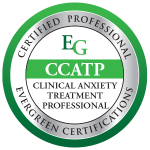Increased Yawning Isn’t The Only Result of Sleep Deprivation
Nowadays it seems like a contest to be as busy as possible. If your answer to how things are going is not “busy,” then you are perceived to be lazy. There are often not enough hours in the day to accomplish the tasks you would like to. As a result, many of us cut into our hours of sleep in order to get more done.
Not a big deal, right? You are being more productive and using more time to accomplish the things you need to. Win-win.
But when you look at all of the negative effects of a lack of sleep, there start to be more losses than wins. There are a whole slew of problems that can result from not getting enough sleep, especially long term. Some of these effects include problems with memory and thinking, an increased risk of accidents, changes in mood, weight gain, and a weakened immune system.

In fact, a study found that “moderate sleep deprivation produces impairments in cognitive and motor performance equivalent to legally prescribed levels of alcohol intoxication.” We don’t allow people to drive drunk, yet driving while tired is not against the law, and may even be the norm.
Sleep needs to be prioritized. It needs to be put on the pedestal of importance upon which it rightly belongs. Sleep allows our bodies to recover, regenerate, and recoup from the stress we experience on a daily basis. This is not lazy, nor is it a luxury. It is an essential element of being a healthy, happy, and productive human being.
Sleep and Mental Health
Another study found that those who are sleep deprived had a “less positive affect.” In addition, they reported an increase in anxiety and catastrophizing when sleep deprived. This means that a lack of sleep can cause you to feel more stressed and anxious, and to expect negative consequences where there may be none. This can greatly affect your decision-making skills and mood.
In addition, sleep deprivation can lead to an increase in depressive feelings. This can include feeling sad, empty, irritable, and less enthusiastic. According to the National Sleep Foundation, “people with insomnia have greater levels of depression and anxiety than those who sleep normally. They are 10 times as likely to have clinical depression and 17 times as likely to have clinical anxiety.” These are some pretty significant statistics showing that a lack of sleep can have an influence on your daily functioning, mood, and life satisfaction.
It is important to keep in mind the chicken or the egg discussion. Which comes first? Sleep deprivation or mental health issues? It can occur in both directions, and research shows that some form of sleep deprivation is present in almost all forms of mental illness.
Benefits of Sleep
Sleep is so incredibly important for your overall wellness, and yet it is so overlooked. Sleep can reduce stress, inflammation, and improve memory. It also regulates your hormones, including those responsible for appetite. Proper amounts of sleep can help you maintain a healthy weight (in addition to eating healthy and exercising). Napping can help you be more productive. Sleep is also a time when your body repairs itself from the stressors and harmful exposures of the day. Therefore, it is highly important as a way of regenerating and recuperating from the day.
How Much Sleep Do You Need?
The average recommended nightly hours of sleep for an adult are between 7-9. For adolescents, it is recommended to get 8-10 hours nightly. There is a range because it varies for each person. The amount of sleep you need may be influenced by genetics and how active you are during the day.
It is ideal to determine how much sleep you actually need during a time when you do not have work, school, or other responsibilities. Pick a time when you have vacation for about a week. Go to sleep when your body feels tired and wake up without an alarm when you feel fully rested. This may be more difficult if you have children or pets that will wake you but try your best to listen to your body.
There may be an adjustment period of about 2-3 days in which your body is catching up from prior sleep deprivation. This is considered “sleep debt” and should be taken into account when calculating how much sleep you need. After this initial sleep debt period, determine how many hours you need each night thereafter. Then, average that amount of time to determine how many hours your body needs to feel fully rested.
Increasing Your Amount of Sleep
This amount of time should then become a non-negotiable in your schedule. Maybe you will have to go to bed earlier or wake up later. It is a good idea to stop using any electronics and wind down about an hour before you plan to go to sleep. This is especially important if you have difficulty falling asleep. Exercising earlier in the day can help you feel more tired when it is time to rest. In addition, relaxing activities such as drinking herbal tea, reading, or taking a warm bath/shower can be helpful.
Don’t take my word for it when it comes to the benefits of a good night’s rest. Try this sleep experiment for yourself and see if you notice a difference in your thinking, alertness, mood, and productivity. I know you will start to see a difference once sleep becomes a priority.
Please contact me if you need one-on-one assistance improving your sleep habits, mood, and mental health.











3 Responses
This is worth sharing! Most people these days don’t realize that there are serious implications of being sleep deprived. I think we should analyze our sleeping patterns to avoid the rosters of both physical and mental health issues arising from sleep loss.
Thanks so much for the feedback! I totally agree- keeping track of sleeping patterns is an excellent tip for increasing awareness of the physical and mental health problems that sleep deprivation can lead to.
That’s why we should be aware as to how important having enough hours of sleep and as to how could it benefit you.
Comments are closed.